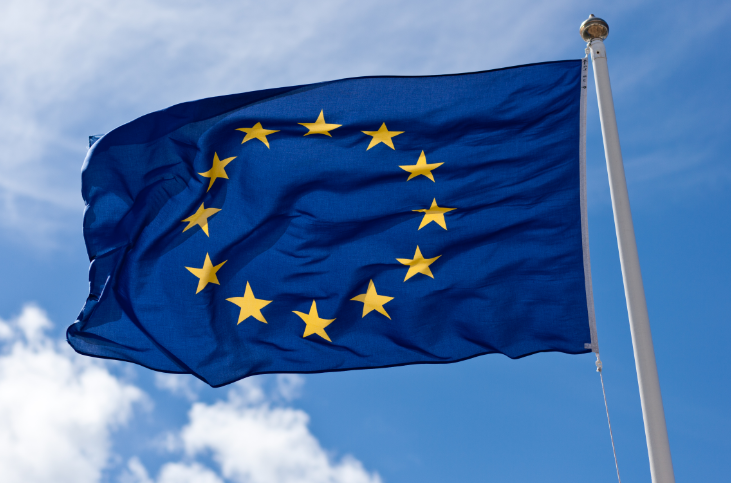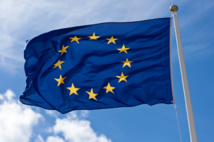The decision on the visa-free regime with Turkey is part of an agreement between Brussels and Ankara. In particular, Turkey agreed to accept migrants, permeated Turkish-Greek border. However, despite of the preliminary consent, Turkey still must meet certain conditions. According to BBC, if the European Commission on Wednesday allows introduction of the visa-free regime, it will be done with great reluctance.
Normally, countries applying for visa-free travel to Europe for its citizens, should respect the principles of freedom of expression, as well as ensure independence of the judiciary and changes to anti-terror legislation in order to effectively protect the rights of minorities. At the moment, Turkey can hardly meet these requirements. "Ankara regularly suppresses opposition, using more autocratic than democratic methods", - notes BBC.
A two-day EU summit ended in Brussels, March 18. The session’s key theme was settlement of the influx of illegal migrants.
Prime Minister of Turkey Ahmet Davutoglu discussed visa-free regime issues with the European partners. "We have agreed to open a new chapter in the negotiations on Turkey's accession to the EU, dedicated to fiscal and financial policy", - he said at the final press conference, announcing that the Turkish side expects the visa-free regime with EU countries to be introduced in June this year. In addition, as reported by Reuters, the EU has promised to accelerate the disbursement of € 3 billion to Ankara to resolve migration crisis, with possibility to double that amount by the end of 2018.
Turkey, in turn, pledged to take back illegals trying to escape to Greece over the Aegean Sea.
The migrants’ return will be made under the "one for one" condition: the EU will take in a legitimate refugee for each illegal migrant returned to Turkey. The legal refugees will be considered those who arrived in Turkey and meets the criteria of the UN Convention on the protection of refugees (most often, they come directly from armed conflict zones). In turn, illegals are those who tries to flee from "safe" Turkey to European countries.
However, many experts argue that the reached agreement is only the first step towards addressing the immigration crisis. Recall, last year alone more than 1.2 million people applied for asylum in the EU countries. This year, their number may be even greater.
Many EU countries flatly refuse to accept new refugees. Lithuanian President Dalia Grybauskaitė said in an interview to BNS agency that the agreement with Turkey does not mean increasing the quotas for the refugees’ reception in the individual Member States. "There is still the big question on how to implement this agreement", - she said. Recall that in 2015-2016, Lithuania consented to harbor just 1105 refugees.
source: bbc.com
Normally, countries applying for visa-free travel to Europe for its citizens, should respect the principles of freedom of expression, as well as ensure independence of the judiciary and changes to anti-terror legislation in order to effectively protect the rights of minorities. At the moment, Turkey can hardly meet these requirements. "Ankara regularly suppresses opposition, using more autocratic than democratic methods", - notes BBC.
A two-day EU summit ended in Brussels, March 18. The session’s key theme was settlement of the influx of illegal migrants.
Prime Minister of Turkey Ahmet Davutoglu discussed visa-free regime issues with the European partners. "We have agreed to open a new chapter in the negotiations on Turkey's accession to the EU, dedicated to fiscal and financial policy", - he said at the final press conference, announcing that the Turkish side expects the visa-free regime with EU countries to be introduced in June this year. In addition, as reported by Reuters, the EU has promised to accelerate the disbursement of € 3 billion to Ankara to resolve migration crisis, with possibility to double that amount by the end of 2018.
Turkey, in turn, pledged to take back illegals trying to escape to Greece over the Aegean Sea.
The migrants’ return will be made under the "one for one" condition: the EU will take in a legitimate refugee for each illegal migrant returned to Turkey. The legal refugees will be considered those who arrived in Turkey and meets the criteria of the UN Convention on the protection of refugees (most often, they come directly from armed conflict zones). In turn, illegals are those who tries to flee from "safe" Turkey to European countries.
However, many experts argue that the reached agreement is only the first step towards addressing the immigration crisis. Recall, last year alone more than 1.2 million people applied for asylum in the EU countries. This year, their number may be even greater.
Many EU countries flatly refuse to accept new refugees. Lithuanian President Dalia Grybauskaitė said in an interview to BNS agency that the agreement with Turkey does not mean increasing the quotas for the refugees’ reception in the individual Member States. "There is still the big question on how to implement this agreement", - she said. Recall that in 2015-2016, Lithuania consented to harbor just 1105 refugees.
source: bbc.com



















